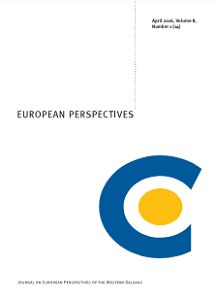Socio-economic Impact of the EU Visa Liberalization for Kosovo and Peoples Motives in Utilising the Freedom of Movement within the EU
Socio-economic Impact of the EU Visa Liberalization for Kosovo and Peoples Motives in Utilising the Freedom of Movement within the EU
Author(s): Alban Asllani, Shkumbin Misini, Kujtim BytyqiSubject(s): Politics, Economic policy, International relations/trade, Economic development, EU-Accession / EU-DEvelopment, Socio-Economic Research
Published by: Mednarodni inštitut za bližnjevzhodne in balkanske študije IFIMES
Keywords: visa liberalization; mobility; networking; socio-economic development; economic growth; people-to-people contact;
Summary/Abstract: This study intends to identify the main potential positive social and economic indicators of visa liberalisation for Kosovo, analyse the effect of citizens mobility in the attraction of foreign direct investments to the country, and the benefits of citizen mobility in the creation of social and business networks in the European Union, which contribute to the positive economic growth and harmonization as the first steps taken to EU membership. The study argues that visa liberalization for Kosovo is of imperative importance in preparing Kosovo for EU membership. The study also argues that citizens of Kosovo benefit substantially by creating networks with professionals in the areas of research, technology, and education. These networks could potentially lead to local businesses gaining from outsourcing, which would overtime increase economic development of the country. However, the study also outweighs the possible negative social and economic impacts of visa liberalization for Kosovo. Furthermore, the study’s focal point is the analysis of the survey of Kosovars on how they would utilize the EU visa liberalisation regime, using descriptive, correlation, and regression analysis. The regression shows a strong negative correlation between employment status, and work and study as a reason for visiting the EU member states after visa liberalisation, while there is strong positive correlation between employment status and business, tourism and research as reasons for visiting the EU. Similarly, strong correlations have been found between education level of the respondents and their age group as demographics in one side, and work, study, tourism doing business, and conducting research as reasons for visiting EU after the visa liberalisation regime is granted to Kosovo. By conducting such analysis, the authors of this study expect to give a comprehensive overview of the current situation in terms of economic and socio-political implications regarding the visa liberalization, and the motives of Kosovars in utilising the visa liberalisation regime based on the responses received from the questionnaires.
Journal: International scientific journal European Perspectives
- Issue Year: 5/2013
- Issue No: 2 (9)
- Page Range: 15-42
- Page Count: 28
- Language: English

